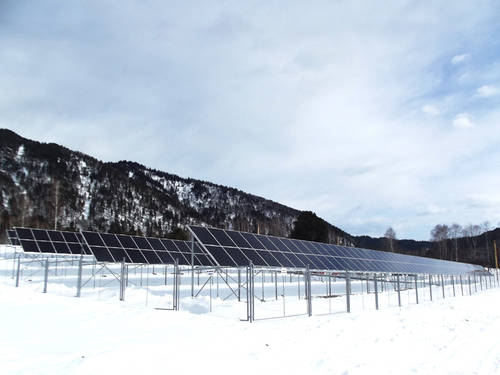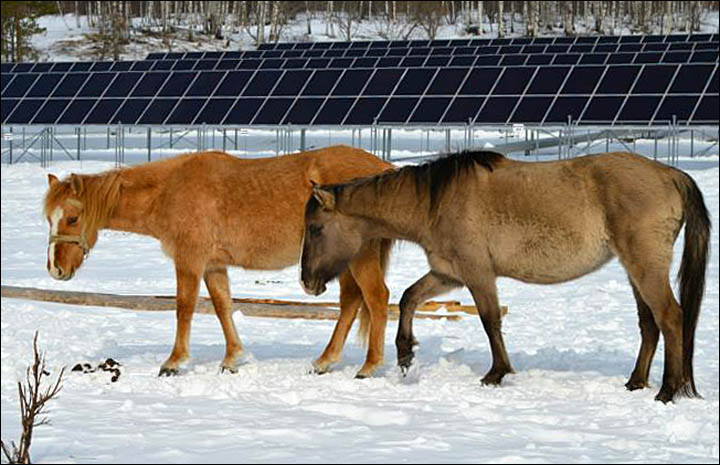Supplying energy needs in remote areas
The Altaiskiy biosphere reserve is located in the area of the north-eastern and eastern Altai and occupies the eastern part of the Teletskoye Lake basin in the Russian Federation. The Teletskoye Lake has the additional status of being a UNESCO World Nature Heritage Site.
On 2013, a 100 kW hybrid diesel-solar power station was put into operation in Yailyu village, within the Altaisky biosphere reserve. The power station is the only one to use solar energy in the country and supplies a large village with electricity 24 hours a day.
Off-grid solar diesel power plant
This project is of particular importance given the problems that affect electricity supply in the remote villages of this region. Previously the village used an old diesel generator and electricity was supplied only during the daytime.
The autonomous hybrid power station, which includes solar modules and a diesel generator, is controlled automatically. When there is insufficient solar energy output, the diesel generator starts. It is expected that operation of this station will lead to a 50% reduction in annual consumption of diesel fuel in this remote village. The warranty period is 25 years. At present, the power station is working in test mode and all technical parameters are being monitored.
The solution combines the benefits of solar and diesel generation as well as the latest technological achievements in electrical accumulators and intelligent management systems that enable efficient load distribution between PV system, accumulators and the diesel generator.
This power plant will serve as an educational and demonstration resource for students and visitors to the Teletskoe Lake and the Altaisky biosphere reserve, educating them about the use of renewable energy sources. Scientists believe that the installation of the hybrid power station could mark the beginning of large-scale development and deployment of solar energy in Russia, starting in its remote regions.
The project was implemented through the joint efforts of various organizations and agencies. The power station was financed by the federal budget with co-financing from Hevel, Moscow, (a joint venture between Russian Corporation of Nanotechnologies and Renova Group of Companies). Other organizations were also involved in project implementation, helping mostly with equipment installation. These were: A.F. Ioffe Physics-Technical Institute (St. Petersburg), the Russian Academy of Science, LLC ‘Avelar Solar Technology’ (Moscow) and ‘Solar Energy’ (Altai Republic).
The Altaisky biosphere reserve demonstrated great initiative and contributed significantly to this project.
Lessons learned and replicability
This diesel-solar power plant, by its type and capacity the first in Russia, will serve as an effective base for scientific researches and education programs in solar energy, which is of great importance in remote areas of Russia.
© Image: Alexander Tyryshkin

















